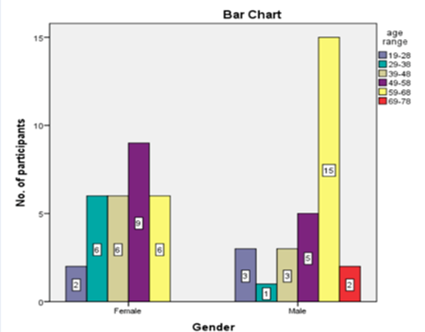Abstract
The best treatment option available for treating any generalised tooth structure loss is to undergo full mouth rehabilitation. Full mouth rehabilitation aims at restoration of form and function of masticatory apparatus to nearly as normal condition as possible. The aim of the study was to report on the gender distribution and most common cause for full mouth rehabilitation among patients with FMR in a private dental college over six months of period. A retrospective study was done using the case records of patients visiting University hospital from June 2019 - March 2020. Case sheets with information on full mouth rehabilitation were retrieved and analysed using SPSS 20.0 software. Descriptive statistics and chi-square tests were performed. The results reported that there were no particular differences in gender distribution. Both females and males had equal predilection(50 % - males, 50 % - Females). Majority of the males who are diagnosed with FMR were in the age group 59 to 68 years whereas females diagnosed with FMR were in the age group 49 to 58 years which was found to be statistically significant as determined by chi-square tests(p value< 0.05). The most common reason in males for full mouth rehabilitation was attrition whereas in females multiple missing teeth, however, there was no significant association between the genders and cause of full mouth rehabilitation as determined by Pearson's chi-square test (p value> 0.05). Within the limits of the study, it can be concluded that Full mouth rehabilitation was done in both genders equally and females underwent FMR at a much younger age than males.
Full text article
Authors

This work is licensed under a Creative Commons Attribution-NonCommercial-NoDerivatives 4.0 International License.

